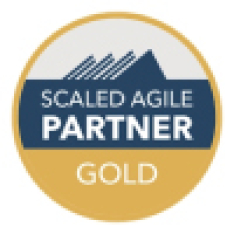Who should attend this Lean Portfolio Management SAFe® Course?
The Lean Portfolio Management (LPM) SAFe® Course in Charleston is intended for individuals who are responsible for Portfolio Management within an organization and are interested in implementing Lean-Agile principles to optimize and govern their portfolios. This course is particularly relevant for:
- Portfolio Managers
- Senior Executives
- Product Managers
- Program Managers
- Business Owners
- Agile Leaders
- Enterprise Architects
Prerequisites of the Lean Portfolio Management SAFe® Course
There are no formal prerequisites for this Lean Portfolio Management SAFe® Course;. however, qualities like an understanding of Agile principles and practices, familiarity with SAFe®, and experience in a Lean-Agile environment will be beneficial.
Lean Portfolio Management SAFe® Course Overview
Lean Portfolio Management SAFe® in Charleston is a discipline that applies lean thinking to the management of business, program, and product portfolios. It's highly relevant in today's fast-paced business environment, as it enables organizations to achieve a flexible flow of high-value work, gain visibility, optimize strategies, and connect strategy with implementation.
Understanding Lean Portfolio Management is essential for professionals involved in Portfolio Management, business strategy, and Agile practices. Portfolio Managers, Business Leaders, and anyone aiming to enhance their strategic management skills should aim to master this subject in Charleston. Lean Portfolio Management SAFe® empowers professionals to make informed decisions, optimize portfolio operations, and align business strategy with execution.
The 2-day Lean Portfolio Management SAFe® Training by the Knowledge Academy in Charleston is designed to provide delegates with the knowledge and practical skills to effectively implement lean portfolio management in their organizations. During this training, delegates will learn how to conduct low-cost experiments to evaluate Minimum Viable Products (MVPs) and create solution roadmaps for forecasting solution deliverables.
Course Objectives
- To develop solutions required for collaborating with external suppliers
- To convert a business hypothesis into a technology-enabled solution
- To develop business initiatives and implement new features
- To balance the backlog of new business features with continual investment
- To provide a shared mindset for improving operational efficiency
- To launch the LPM implementation and create a sense of urgency for change
At the end of this training course in Charleston, delegates will be able to use practical tools and techniques to implement the Lean Portfolio Management functions in their organizations. They will also be able to capture the current and future state of the portfolio and identify important business initiatives to achieve the portfolio vision.






































 Back to course information
Back to course information




 If you wish to make any changes to your course, please
If you wish to make any changes to your course, please

